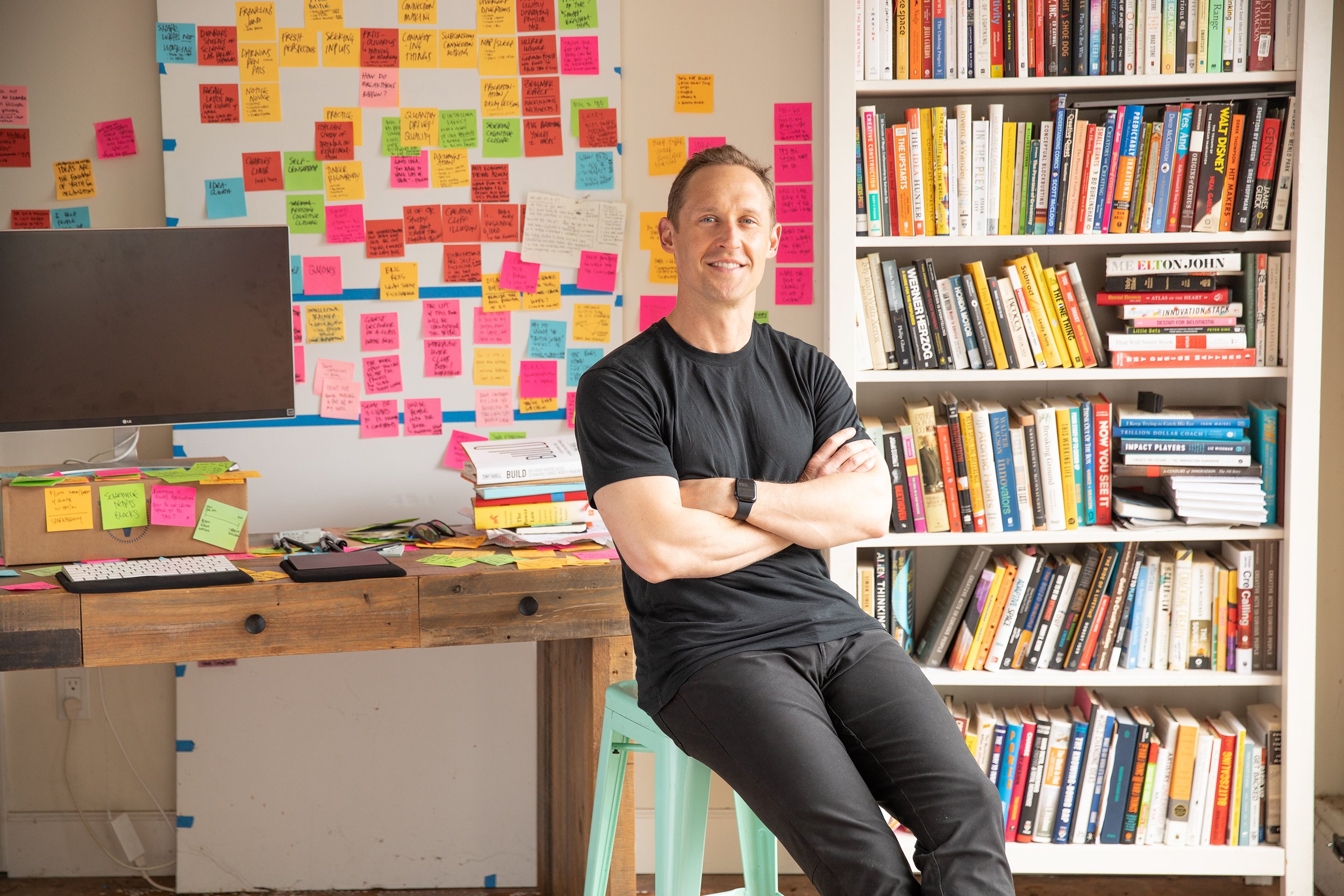
Methods of the Masters
A blog on the art & science of creative action.
Make Connections
The fundamental responsibility of the innovator is to make connections. But how does one do that? Here are a few starting suggestions.
Diagram Your Last Breakthrough
Most folks are the victims OF a breakthrough more often than they are the perpetrators. It doesn’t have to be that way. We can tempt lightning… Or at least, we can increase the odds of a strike.
Examine Resistance
If you want to avoid resistance, don’t suggest doing anything new. Almost every attempt to introduce innovation is met with resistance. By examining the surprising sources of resistance, we can learn how to frame innovation in a way that wins minds.
Flip The Script
Organizations inadvertently insulate us from the things that bother our customers. When we immerse ourselves in our own products and processes, we viscerally experience what needs to be reinvented.
Pick Up A Side-Project
Marcus Hollinger is a modern day renaissance man. While he’s got a steady gig as CMO of Reach Records, he also just started an incredible coffee company on the side. Far from sapping him of creative energy, the side-hustle fuels fresh thinking.
Request Options
Legendary Stanford professor Bob McKim had a simple, standard response to any student seeking his feedback on a new project: “Show Me Three.”
Make A Manifesto
Inspired by an assignment we give our graduate students, here I attempt to state my intent as a researcher and teacher. Your feedback is very much welcome.
Consider the Odds
Innovation is a numbers game. Knowing prior probabilities helps founders calibrate their efforts. Some simple math can improve your speed of learning dramatically.
Be Your First Customer
The company’s next product might be hiding in plain sight: where you’re already servicing your own needs. Thinking about yourself as the first customer among many, instead of the total addressable market, is a game-changer.
Embrace Constraints
If necessity, as they say, is the mother of invention, perhaps we could say that constraints are invention’s crazy uncle. Better not to fight them, and instead spring off of them into unexpected & truly differentiated directions.
Call A Time Out
Perhaps the greatest thing one can do to establish trust is to address the elephant in the room — “Is this person safe?” — head on, straight out of the gate. Inspired by Ise Lyfe.
Normalize Growth
Students mistakenly assume that, while they’re supposed to be learning, yet surely at some point — ostensibly, by the time you become a “successful teacher” — you don’t need to grow anymore. This is a shame, as it robs them of agency and power.
Map Your Mind
“You know that fantastic feeling you get after a great brainstorm? How do you get that on your own?” David Kelley, founder of IDEO and the Stanford d.school, gave me a lesson in pushing my own thinking. “Do a mind map. They’re the key to my creative success.”
Make Sense of Things
The very act of writing serves to reinforce learning. Putting things into our own words turns information into knowledge. And sharing has the potential crystallize that knowledge, not just for others, but even more importantly, for ourselves.
Make It To Make It Better
Philippe Barreaud, Head of Michelin’s Customer Labs, has a hard-won portfolio of insights from leading global innovation for 20+ years. Here, he revels in the paradoxes of prototyping as a toolkit.
Obliterate Compartments
One of the most transformative inputs to shift the trajectory of Phoebe Yao’s start-up, Pareto, came when she least expected it: not during a mind-blowing mentor meeting arranged by a VC, but in a chance encounter with a friend in the park.
The Problem With Solving Problems
I had the privilege of thinking alongside the brilliant Kim Scott, and shared some insights on her “Radical Candor” blog. Re-posting here with her permission. Feedback welcome!
Look For What’s Right
What kind of contributions get rewarded in your workplace? What constitutes brilliance? It’s critical to recognize that the definition of “genius” changes as we shift between convergent and divergent modes of thinking — and what gets rewarded should, too.
Hold A Shoot-Out
Rick Rubin is one of the most successful music producers of all time, in any genre. His approach to production has more in common with technology innovators like Steve Jobs than some fans might think.




















